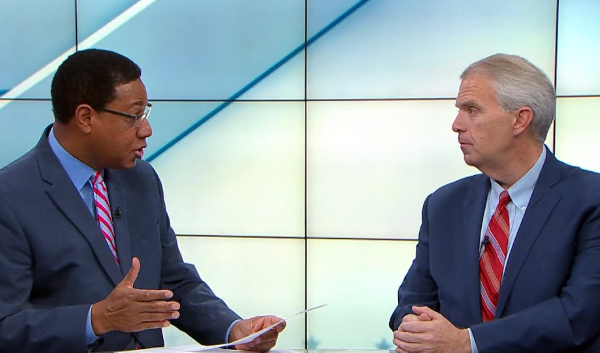We all saw the stories last year. More journalism job layoffs, not just in newspapers but web platforms like Huffington Post and Buzzfeed; even CNN reduced staff. Then, at the end of the year, a major merger, as well as some smaller acquisitions brought job reductions to a number of local television stations.
The sad fact is that multi-billion-dollar acquisitions create multi-billion-dollar debt. The money for those massive debt payments has to come from somewhere. One way is to reduce staff.
So, what are the bright lights? Quite a few, actually. First, the acquisition monster seems to be sated for the moment. Second, 2020 is going to be a great revenue year. Third, and most importantly, the value of a network television station is based on two things: the strength of local news and value of the network affiliation.
I’ve written previously how retransmission fees have changed the value proposition of local news during retransmission negotiations, so let me be clear. When it comes to buying and selling stations, nothing affects the value more than the strength of local news. Retransmission fees can be changed. Local news position usually cannot.
2020 is going to be a big political year, but here is a warning: There is great fear in our industry that 2021 will be a revenue disaster. As we near the end of this year, expect to see talk of reducing resources, including people, for 2021.
If you are a local news director, you have a responsibility to speak up about the resources needed to maintain your station’s position. It’s easy for someone from corporate to look at a station’s budget and say, “Why do they need that many people in the news department when we have another station in a similar size market with fewer employees?” It might be that the other station is #3 and yours is #1. Or, it could be that the station is organized differently with some news jobs listed in other departments (I’ve seen that trick more than once). Or it could be a wide range of other things.
When I say “speak up,” I mean doing so respectfully and based on the facts. Saying “I can’t get the job done with these resources” might cause your boss to look for a new news director. Instead, let’s look at the proper way to speak up and make your case.
- Take the time to lay out on paper exactly how your department is organized. Really think about it. Why do you need a full-time overnight editor? How many reporters do you have on the street? Why do you need that many? Look at every position with an open mind. Once you have done all this, figure out how you would reorganize with fewer people. What are the downsides? What are the upsides, if any? It also doesn’t hurt to estimate how many people your competitors have. You must do all of this objectively. Otherwise, your GM or corporate manager will poke holes in your analysis, putting you in a poorer position than when you started.
- If you follow Step 1, and you do find yourself in that dreaded position of facing layoffs, you will be already prepared to negotiate. Start by saying, “We will do whatever is necessary, but I’ve given a lot of thought to this and this is what layoffs would mean.” Then present your case. Will it change anything? It all depends. What you are also doing is giving your general manager ammunition to defend your department. You will get the credit for thinking it through, but your GM must make the case to corporate.
- Here’s a secret that works in your favor. Corporate people usually don’t care which department the job cuts come from. Make your case well and even if corporate still wants reductions, your GM may choose to find them in a less critical area of the station.
- Finally, the strongest case you have to prevent job cuts is ratings. Find out from your general sales manager what a rating point is worth in all your newscasts. What would a quarter-point loss mean? What about a quarter-point gain? It will be a lot of money. This is where you are able to go on the offensive. Tell corporate that you want to grow news ratings a quarter-point, but to do so you will need your current staff.
For highly leveraged owners, it really is just about the money. I know money is an uncomfortable thing for many news directors to talk about, but get over it. Make your case in dollars and cents, and you may just win.

Hank Price is a veteran media executive, educator and author of Leading Local Television (BPP, 2018) and co-author of Managing Today’s News Media: Audience First (Sage, 2015) a management textbook. He is a frequent speaker to television industry groups about the future of media. He currently serves as Director of Leadership Development for the School of Journalism and New Media at Ole Miss. During a 30-year career as a television general manager, Priced specialized in turnarounds, leading television stations for Hearst, CBS and Gannett. During this time, he became known for turning traditional businesses into multi-platform brands. Simultaneously, he spent 15 years as senior director of Northwestern University’s Media Management Center, teaching in both the domestic and international executive education programs.








